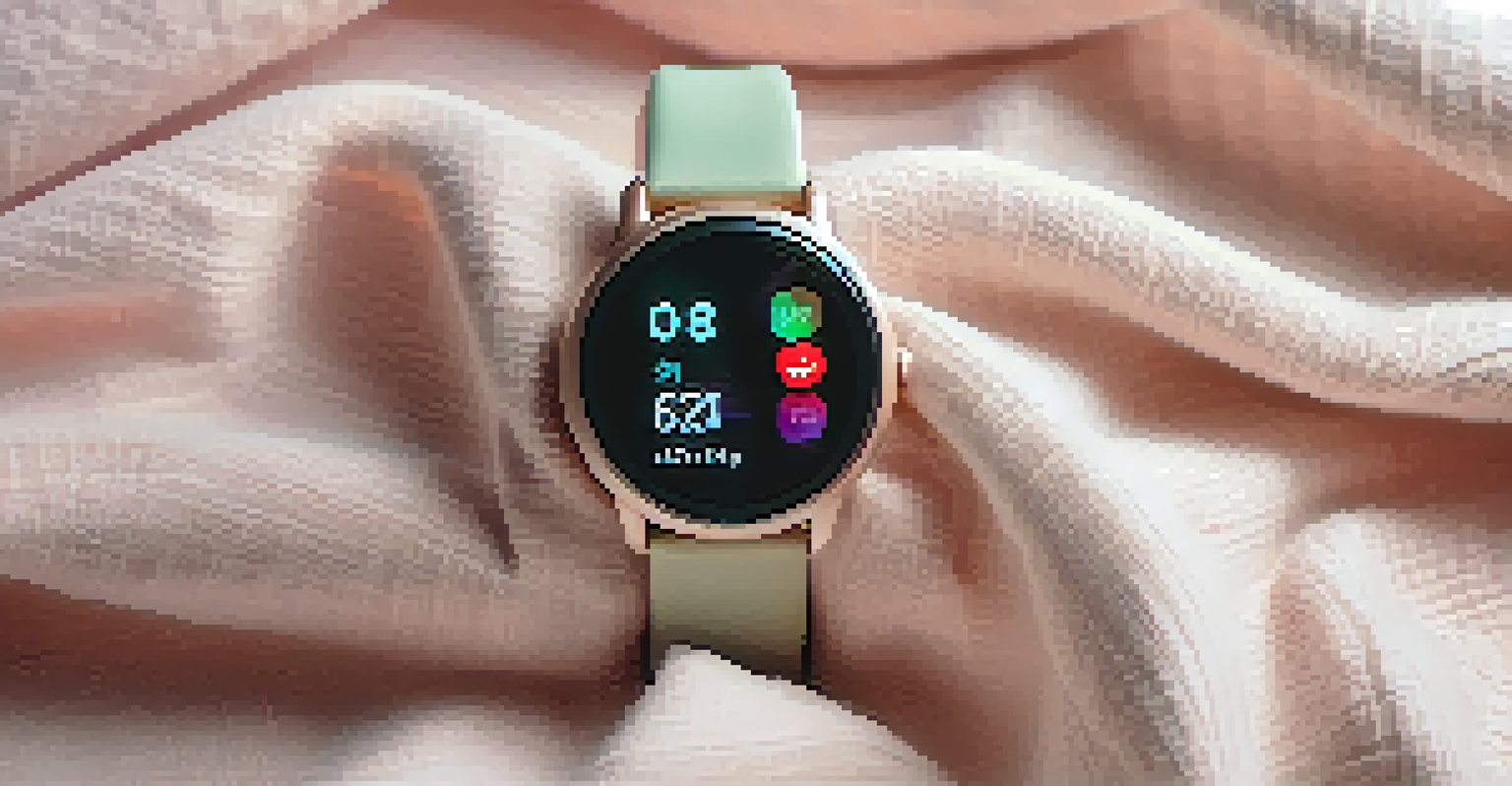Behavioral Health Tech: Addressing Mental Wellness Needs

Understanding Behavioral Health Technology and Its Importance
Behavioral health technology encompasses tools and solutions designed to support mental wellness. It includes mobile apps, teletherapy platforms, and wearable devices that monitor mental health indicators. As mental health issues rise globally, these technologies offer innovative ways to access support and resources.
Technology is best when it brings people together.
The importance of behavioral health tech lies in its ability to make mental health care more accessible. Many individuals face barriers such as stigma, cost, and geographical limitations, which can prevent them from seeking help. By leveraging technology, we can break down these barriers and connect people to the resources they need.
Moreover, behavioral health tech can provide real-time data and insights into a person's mental state. This data can help professionals tailor interventions and track progress over time. In essence, technology is revolutionizing the way we approach mental wellness.
Teletherapy: Bridging Gaps in Mental Health Care
Teletherapy has emerged as a game-changer in behavioral health. It allows individuals to connect with licensed therapists from the comfort of their homes, eliminating the need for travel and reducing anxiety about in-person visits. This convenience is especially beneficial for those in rural or underserved areas.

One of the key advantages of teletherapy is its flexibility. Clients can schedule sessions at times that suit their busy lives, making it easier to prioritize mental health. Additionally, the variety of communication methods—video calls, phone calls, or even chat—means that people can choose what feels most comfortable for them.
Teletherapy Enhances Access to Care
Teletherapy allows individuals to connect with therapists remotely, reducing barriers like travel and stigma.
Research shows that teletherapy can be just as effective as traditional face-to-face therapy for many conditions. It offers a safe space for individuals to discuss their feelings and challenges while maintaining privacy. This evolution in therapy delivery is reshaping the landscape of mental wellness support.
Mobile Apps: Empowering Users to Manage Mental Health
Mobile applications dedicated to mental health are on the rise, providing users with tools to manage their mental wellness. These apps often include features like mood tracking, guided meditations, and cognitive-behavioral therapy (CBT) exercises. They empower users to take an active role in their mental health journey.
The greatest weapon against stress is our ability to choose one thought over another.
One popular example is a mood tracking app that prompts users to log their feelings throughout the day. By identifying patterns, users can gain insights into their triggers and responses. This self-awareness can be a powerful step toward managing emotions and improving overall mental health.
Additionally, many apps offer community features that connect users with others facing similar challenges. This sense of community can help alleviate feelings of isolation and provide essential support. Ultimately, mobile apps are democratizing mental wellness resources.
Wearable Technology: Monitoring Mental Health Indicators
Wearable technology, like fitness trackers and smartwatches, is increasingly being utilized to monitor mental health indicators. These devices can track heart rate variability, sleep quality, and even physical activity levels, all of which can impact mental wellness. By keeping tabs on these metrics, users can better understand their mental health.
For instance, a sudden increase in heart rate might indicate anxiety or stress, prompting users to engage in mindfulness exercises. This immediate feedback can help individuals take proactive steps toward managing their mental health. It's like having a personal health coach on your wrist!
Mobile Apps Empower Mental Health
Mental health apps provide users with tools for self-management, fostering greater awareness and community support.
Moreover, researchers are exploring how data collected from wearables can provide insights at the population level. This can lead to improved mental health interventions and inform public health strategies. As technology evolves, wearables will play a significant role in understanding and enhancing mental wellness.
AI and Chatbots: Providing On-Demand Support
Artificial intelligence (AI) and chatbots are making mental health support more available than ever. These virtual assistants can provide immediate responses to users' inquiries, offering coping strategies or resources when needed. This on-demand support can be a lifeline for individuals in crisis.
For example, some chatbots are designed to engage users in conversations that help them process emotions or practice mindfulness techniques. They can serve as an entry point for those who may be hesitant to seek human interaction. This technology is a stepping stone toward encouraging more people to address their mental health needs.
However, it's essential to recognize that while AI can be a helpful tool, it doesn't replace human connection. These technologies should complement traditional therapy and support systems, ensuring users have multiple avenues for assistance. The integration of AI in mental health care is paving the way for a more comprehensive approach.
Data Privacy: Balancing Innovation and Security
As behavioral health technology advances, data privacy becomes increasingly critical. Users must trust that their personal health information is secure when using apps and platforms. Organizations must prioritize data protection to ensure that individuals feel safe sharing sensitive information.
This is particularly relevant in mental health, where stigma and confidentiality concerns are already significant barriers. Companies need to implement robust security measures and be transparent about how user data is collected, stored, and used. Building trust is essential for the widespread adoption of these technologies.
AI Offers On-Demand Mental Support
AI and chatbots provide immediate assistance for mental health needs, complementing traditional therapy methods.
Moreover, regulatory frameworks like HIPAA (Health Insurance Portability and Accountability Act) in the U.S. set guidelines for how health information should be handled. It's crucial for tech developers to stay informed about these regulations and ensure compliance. Striking a balance between innovation and security will foster a safe environment for users.
Future Trends in Behavioral Health Technology
The field of behavioral health technology is constantly evolving, with new trends emerging to address mental wellness needs. One promising area is the integration of virtual reality (VR) in therapy, allowing users to confront fears and anxieties in a controlled environment. This immersive experience can lead to significant breakthroughs for individuals facing phobias or PTSD.
Another trend is the increased focus on personalized mental health solutions. With advancements in data analytics, providers can tailor interventions based on individual needs and preferences. This personalized approach can enhance engagement and improve outcomes for users.

As we look to the future, collaboration between mental health professionals and tech developers will be vital. By working together, we can create tools that not only meet the needs of users but also integrate seamlessly into traditional mental health care. The potential for behavioral health technology is vast, and the journey has just begun.